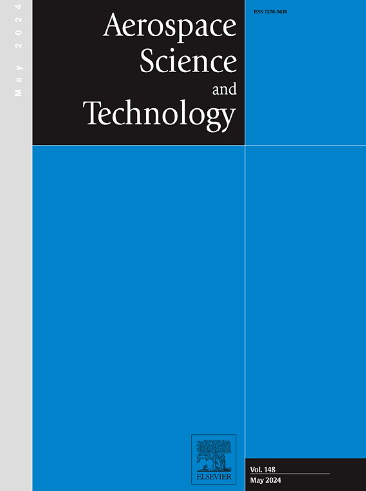Molecular dynamics simulation of aluminum combustion in an oxygen environment under electric field
IF 5
1区 工程技术
Q1 ENGINEERING, AEROSPACE
引用次数: 0
Abstract
This study, for the first time, investigates the combustion behavior of aluminum(Al) in an oxygen environment under various electric fields using molecular dynamics simulations. The results indicate that the electric field enhances the mobility of Al atoms and reduces the activation energy, leading to a particle acceleration effect that boosts the burning rate and shortens the reaction time. As the electric field strength increases, the O/Al ratio of the final products approaches the theoretical value of 1.5 for complete combustion, and the number of intermediate species increases, indicating more thorough and intense Al combustion. Specifically, the electric field induces the generation of more free radicals during the reaction and reduces the average distance between Al and O atoms, thereby increasing atomic collision rates and contact frequency, further facilitating Al combustion. Under a strong electric field of 0.01V/Å, the electric field disrupts the original force equilibrium of Al atoms, leading to Al atoms escape and the gradual fragmentation of Al particles. Experimental studies on the electric field regulation of single Al particle combustion reveal that the reaction time is reduced by approximately 40 % under an electric field. Additionally, the combustion flame becomes larger and brighter, verifying that the electric field promotes the combustion of single Al particles. Under a high-voltage electric field of 5 kV, fragmentation of Al is observed during the combustion process. These experimental findings corroborate the molecular dynamics simulations, providing valuable insights for understanding and controlling Al combustion behavior under electric field.
求助全文
约1分钟内获得全文
求助全文
来源期刊

Aerospace Science and Technology
工程技术-工程:宇航
CiteScore
10.30
自引率
28.60%
发文量
654
审稿时长
54 days
期刊介绍:
Aerospace Science and Technology publishes articles of outstanding scientific quality. Each article is reviewed by two referees. The journal welcomes papers from a wide range of countries. This journal publishes original papers, review articles and short communications related to all fields of aerospace research, fundamental and applied, potential applications of which are clearly related to:
• The design and the manufacture of aircraft, helicopters, missiles, launchers and satellites
• The control of their environment
• The study of various systems they are involved in, as supports or as targets.
Authors are invited to submit papers on new advances in the following topics to aerospace applications:
• Fluid dynamics
• Energetics and propulsion
• Materials and structures
• Flight mechanics
• Navigation, guidance and control
• Acoustics
• Optics
• Electromagnetism and radar
• Signal and image processing
• Information processing
• Data fusion
• Decision aid
• Human behaviour
• Robotics and intelligent systems
• Complex system engineering.
Etc.
 求助内容:
求助内容: 应助结果提醒方式:
应助结果提醒方式:


